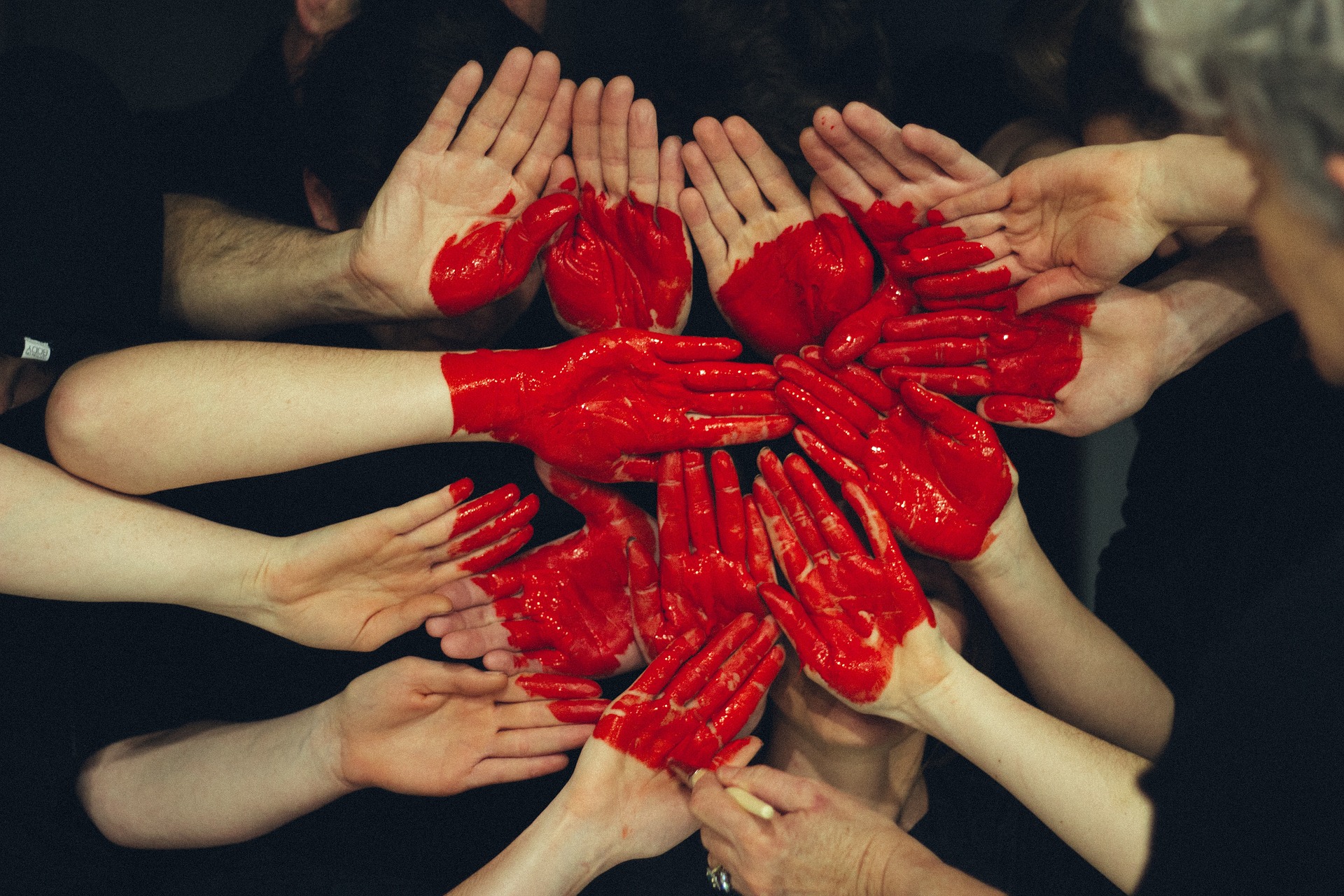
Did you at any point can’t help thinking about what satisfies a general public? Is a glad society brimming with residents who center around their own joy, individuals whose bliss then, at that point gushes out over to others around them? Or then again, perhaps, a glad society is made out of residents who are touchy to individuals around them, subsequently fulfilling others.
In look for the response to the subject of glad social orders, my partners and I began from the perception that various crosscountry considers show that independence predicts cultural satisfaction. That is, social orders that stress people’s requirements and objectives over those of the gathering will in general be more joyful. Notwithstanding, it has been muddled why individuals from individualistic social orders report higher joy. One could presume that zeroing in on oneself and one’s own objectives—as individualistic individuals do—advances cultural bliss. However, our examination challenges this end.
We broke down information from more than 100,000 people gathered across in excess of 90 nations. We tracked down that cultural satisfaction is higher in those individualistic social orders where four explicit mentalities are exceptionally embraced—resilience, trust, municipal commitment, and non-realism. The relationship between these mentalities and bliss was exceptionally solid and was acquired in any event, when different variables—like abundance of the general public—were considered.
However, what do resistance, trust, community commitment, and non-realism share for all intents and purpose? For what reason are social orders in which these four mentalities are famous more joyful? The straightforward answer is by all accounts that every one of these four perspectives benefits others. Being lenient clearly benefits individuals around us. In like manner, believing outsiders benefits others. Our own city commitment may bring us individual advantages, however it additionally benefits others and further develops society overall. What’s more, being non-materialistic likewise makes individuals less centered around collecting cash and assets and more centered around other significant issues.
These four mentalities can be considered as the “open society” perspectives, in recognition for logician Karl Popper, who upheld upsides of resilience, trust, community commitment and non-realism for keeping an open, popularity based society. Popper’s proposes appear to make social orders more open, yet additionally more joyful.
Curiously, albeit these four “open society” mentalities advantage society in general, they don’t considerably advance individuals’ individual fulfillment straightforwardly. Individuals who underwrite “open society” perspectives are not extensively more happy with life than individuals who are biased, dubious, uninvolved in urban issues, and materialistic.
To make in a glad society, we need to underwrite mentalities that advantage individuals around us regardless of whether they don’t straightforwardly profit us by and by. Bliss doesn’t return to us through “karma” when we act well—it returns by implication when individuals around us share mentalities that advantage others. So, the most joyful social orders are those where individuals hold and show mentalities that advantage others.
The way that cultural satisfaction depends on the impacts of our other-profiting perspectives has significant pragmatic ramifications. The immediate advantages to individuals who embrace the open society mentalities are powerless, if present by any means. In this manner, on the off chance that we wish to upgrade cultural satisfaction, motivating forces to receive these perspectives should be coordinated by administering bodies, worldwide and neighborhood associations, and everyone who wants a more joyful society.
At last, albeit the open society mentalities emerge in social orders that stress independence, from numerous points of view, these qualities are very collectivistic. How about we recall that even in individualistic societies, the nature of the general public relies upon how we treat one another.
HOW PERSONALITY CAN HELP BUILD TRUST BETWEEN PEOPLE FROM DIFFERENT CULTURES
Vulnerability is terrifying. Vulnerability makes it difficult to tell what’s in store, how to act, and whether something fortunate or unfortunate will occur. Numerous individuals as often as possible face vulnerability inside the present globalized work environment when representatives are required to rapidly frame cooperative associations with new individuals from everywhere the world. Having individuals from various societies cooperate can be useful for organizations since it unites interesting viewpoints and thoughts that can expand inventiveness. Yet, social contrasts additionally increment vulnerability, and vulnerability may make representatives reluctant to share their points of view and thoughts since they don’t have a clue how the other individual will respond. Imagine a scenario where they are basic. Or on the other hand much more dreadful, imagine a scenario where they accept my thoughts as their own.
To respond to such inquiries, representatives should depend on whatever data is accessible about that individual, which is regularly restricted to surface-level, or actual qualities like race, emphasize, dress, or sexual orientation. Individuals utilize this sort of data to decide how comparable that individual is to themselves, which gives them a reason for deducing what’s in store from the individual. At the point when individuals are like us, it is simpler to foresee how they will act. All things considered, I know how I would act, so on the off chance that somebody is like me, I am less unsure about how they may act. Examination in friendly brain research additionally shows that we have a characteristic inclination for individuals who we believe are like us, and this inclination directs how we pass judgment and act towards others. This “similitude impact” happens rapidly and consequently, driving us to pass judgment on individuals who are like us as more affable, capable, and reliable, in any event, when we initially meet them.
Regardless of whether social contrasts eventually help or hurt joint efforts in business associations relies upon how much the workers trust each other. At the point when we confide in somebody, vulnerability isn’t as alarming on the grounds that we accept that the individual means well and will treat us well, despite the fact that we are questionable about what they will do. This eagerness to believe someone else can be seen in confiding in practices that make us helpless against that individual, like open correspondence, looking for input from the other individual, and imparting data to the person in question, which are all vital for creating working connections in which individuals from various foundations can join their remarkable points of view. So the inquiry turns out to be: How would we improve trust between individuals from various societies?
In a new report, we tried whether certain character qualities might be valuable for distinguishing individuals who are more trusting towards individuals from various societies (Saef et al., 2019). The examination zeroed in on the character trademark called Openness to Experience, which is regularly called only Openness for short. Individuals who are higher in Openness will in general search out information and encounters with societies other than their own. Since individuals who are decided as natural are additionally seen as more like us, Open individuals—who are more acquainted with various societies—may pass judgment on individuals from various societies as more like themselves, and subsequently trust them more. Likewise, in light of the fact that open individuals see themselves as having more information on and encounters with various societies and recognize as more experienced individuals, Open individuals may see other people who additionally know about societies not the same as their own as more comparative, driving them to confide in them more.
To look at what individuals’ degree of Openness meant for the manner in which they saw individuals from various societies, we arbitrarily combined White, American understudies (alluded to as ‘member’ underneath) to work with an individual (alluded to as ‘accomplice’) from either a similar culture or an alternate (Chinese) culture. In the wake of acquainting the members with their accomplice, we requested that members rate how comparative they thought their accomplice was to them and afterward requested that members play a dynamic game that deliberate how believing they acted towards their accomplice.
Of course, members were less trusting towards accomplices from an alternate culture since they saw them to be less like themselves. However, members who appraised themselves as higher in Openness confided in accomplices from different societies more than the individuals who evaluated themselves as lower in Openness since they passed judgment on them to be more like themselves.
This finding recommends that, toward the start of joint efforts between workers from various societies, individuals who are high in Openness will be more able to participate and impart their plans to (or trust) individuals from different societies than individuals who are low in Openness. Also, in light of the fact that trust is a self-supporting wonder, which means trust prompts more trust, remembering somebody high for Openness in coordinated efforts between individuals from various societies may empower participation and data sharing from individuals low in Openness. Hence, at whatever point individuals from troublesome societies cooperate, it very well might be valuable to incorporate somewhere around one individual who is high in Openness.



